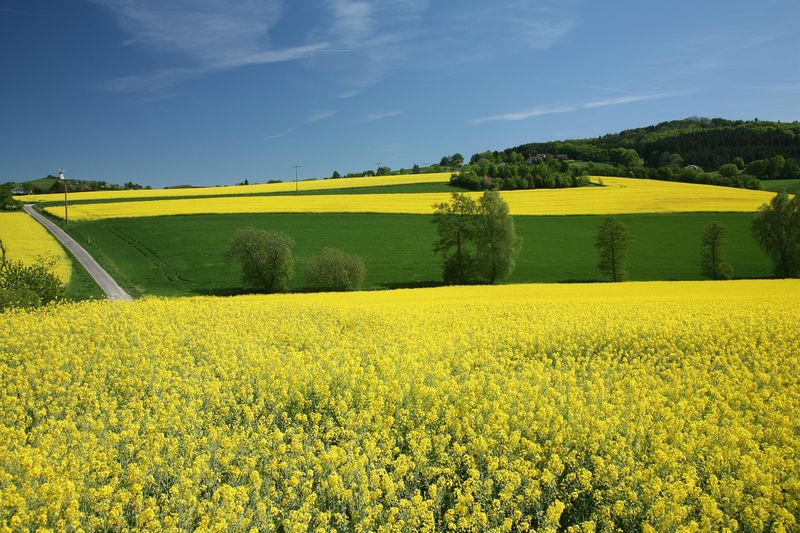The EU will likely buy 800,000 tonnes of Canadian canola in 2018-19, up from its previous five-year average of about 600,000 tonnes, said Chad Molesky, merchandising manager for Viterra’s oilseeds division.
| File photo
The European Union could be a sizable market again in 2019-20 for certified Canadian canola, says a grain trader.
The EU will likely buy 800,000 tonnes of Canadian canola in 2018-19, up from its previous five-year average of about 600,000 tonnes, said Chad Molesky, merchandising manager for Viterra’s oilseeds division.
Canada’s extra business this year is due to short crops in the EU and Australia.
The EU produced 19.6 million tonnes of rapeseed last year, down from the previous five-year average of 22.1 million tonnes.
Australia harvested 2.3 million tonnes, well below the previous five-year average of 3.6 million.
“Canada really comes into play if there are production problems in Europe or Australia or the Black Sea,” said Molesky. “It can get quite substantive for us.”
Molesky thinks there could be an even bigger opportunity for sales to the EU in 2019-20 because EU growers cut back on plantings in the fall in favour of winter wheat and there has been some winterkill.
He believes the EU crop will come in below 18 million tonnes. That is in line with forecasts from market analysis firm Oil World of 18.7 million tonnes, which would be the smallest crop in more than a decade.
Farmers in the EU typically harvest their winter rapeseed in July and crushers use that domestically produced crop through October and then turn to imported product starting in November or December.
European crushers process about 20 million tonnes of rapeseed or canola a year, three million tonnes of which is imported. About 60 percent of the oil produced goes to the biodiesel sector.
Growers who want to deliver canola for Europe’s biodiesel sector need to be certified to the EU’s standards.
Viterra, which is the industry leader in sustainability certification, has been using the International Sustainability & Carbon Certification program to certify thousands of growers over the past five years.
Certification boils down to growers clicking yes or no to five questions about their operations. Molesky said it is “far from onerous.”
“The biggest thing we’ve tried to do with the program is make it as simple as possible,” he said.
“It’s not like (growers) are coming in and they have a 10-page document to review. It is five very basic questions.”
Growers are asked questions about such things as chemical application records, if they have cleared more than 2.5 acres of land since 2008 and if they use ethical labour practices.
Most farmers do not have to make changes to their existing farming practices to become certified.
A certain number of famers are audited every year by an independent agency. The audits typically last five or 10 minutes to ensure the farmer is doing things like proper record keeping.
Molesky said the certification is good for all crops grown on the farm, not just canola. Viterra is starting to get inquiries from customers looking for sustainable wheat, pulses and other oilseeds.
It is opening up new markets for the grain company and its growers.
“We’re gaining (market) access by producers checking off boxes,” he said.
producer.com




